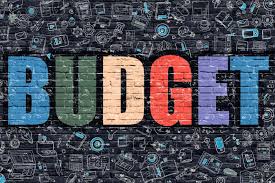Santosh Kumar Mohapatra
The last Budget presented by Union Finance Minister Nirmala Sitharaman, masqueraded failures as successes through fiscal jugglery. The minister exaggerated story of successes of the NDA government with supercilious slogans but did not disclose the fiscal details. This is unethical.
Revenue receipts are falling. But government made tall claims of maintaining fiscal prudence. Experts feel that there is a gigantic “Rs 1.7 lakh crore hole in India’s Budget”. Tax revenue figure given in budget estimate is Rs 1.65 lakh crore higher than that of economic survey. Government expenditure in same budget was also about Rs 1.47 lakh crore higher than what economic survey showed.
The Budget obscured actual receipts and expenditures. While, the Economic Survey used these figures, the budget did not use these updated figures.
Total revenue receipts realised in 2018-19 is Rs 15, 63,170 crore, down from revised estimates of Rs17, 29,682 crore. This is trickery of fiscal consolidation. To contain fiscal deficit at 3.4 per cent of GDP government has cut expenditure and raised capital receipts especially from disinvestment proceeds.
While revenue expenditure is reduced by Rs 1, 32,149 crore, capital expenditure is trimmed by Rs 13,664 crore in against revised estimate. Total expenditure was pruned to Rs, 23, 11,422 crore from revised estimate of Rs 24, 57,235 crore.
Total expenditure as percentage of GDP is declining. Total government expenditure in 2018-19 is around 12.15 per cent of GDP, even lower than the 12.7 per cent registered previous fiscal and 15.82 per cent in 2009. This is abysmal.
With 56 per cent, France has highest expenditure as percentage of GDP. India has also one of the lowest tax-GDP ratios in world. The central tax–GDP ratio which was estimated to be 12.1 per cent in 2018-19 has come down to 11.9 per cent in revised estimate and is again estimated to fall to 11.7 per cent in 2019-20.
There is discrepancy within budget documents in relation to the nominal growth rate of GDP. A footnote in budget document mentions that nominal GDP has been projected at Rs 2,11,00,607 crore in 2019-20 assuming a 12 per cent growth over the estimated GDP of Rs 188, 46,731 crore for 2018-19 as per advance nominal GDP estimates released on January 7, 2019.
But the growth rate of nominal GDP for 2019-20 in the Economic Survey has been projected at 11 per cent over the provisional nominal GDP estimates (released on May 31, 2019) of Rs 190, 10,164 crore of 2018-19. However, current nominal growth is far behind the target envisaged. .
The government has estimated the total expenditure to be Rs 27, 86,349 crore in 2019-20, against Rs 2784200 pegged in interim budget. The fiscal deficit for 2019-20 estimated to be 3.3 per cent from 3.4 per cent pegged in the interim budget despite the fact that estimates of gross tax revenue for the current year have been revised downward by Rs 90936 crore and fiscal deficit touching 52 per cent for the full year in the first two months of current fiscal.
The gross tax revenue for the current year is pegged at Rs 24, 61195 crore against Rs 25, 52131 crore in interim budget. The reduction is attributable to reduced projections for GST (by nearly Rs. 97857 crore) and Income Tax (Rs. 51,000 crore). This exposes the failure of the so-called reform measures of the government such as GST and demonetisation that it had claimed would improve tax compliance.
As a result of which, states share in central tax will decline by Rs 35472 crore (i.e., from Rs 844605 crore in interim budget to Rs 809133 core in full budget). Similarly, Finance commission grants will be reduced by Rs 11436 crore from Rs 131902 crore to Rs 120466 crore.
These additional resources required to contain fiscal deficit are expected to come from increasing reliance on off-budget financing, extraction of surplus earnings of CPSEs, banks and the RBI and higher disinvestment receipts. Even finance secretary has admitted that without off-budget borrowing, fiscal deficit would have been pegged at 3.55 per cent as against 3.3 per cent mentioned in budget. FM has also taken recourse to dangerous path of borrowing in foreign currency to finance the fiscal deficit.
The government expects to generate additional Rs10,000 crore from surcharges like duties on gold and hike in customs and additional excise taxes on petrol and diesel. However, it will also lose revenues due to decline in the corporate tax structure.
However, increased reliance on cesses and surcharges contravenes the spirit of fiscal federalism. The government has not only resorted to fiscal jugglery but also reduced the share of states from divisible pool again. There is no concern for well-being of people in budget except obsession for growth.
